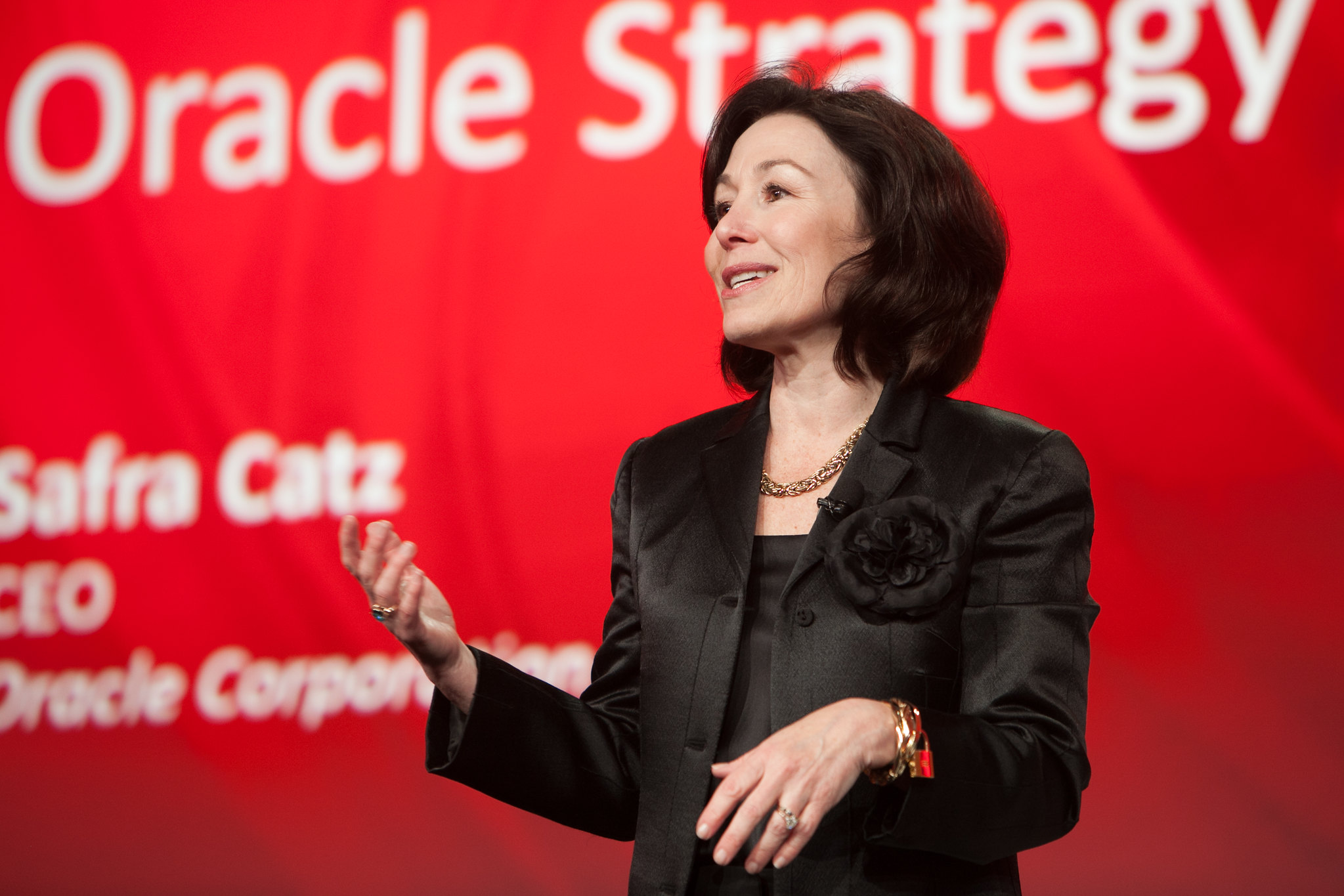Database giant Oracle Corp.’s stock moved up more than 7% in extended trading today after reporting financial results that surpassed analysts’ expectations and saying it expects cloud growth to accelerate in the current quarter.
The company reported fourth-quarter earnings before certain costs such as stock compensation of $1.70 per share on revenue of $15.9 billion, up 11% from the year-ago period. The numbers were better-than-expected, with Wall Street looking for earnings of just $1.64 per share on sales of $15.59 billion.
The strong numbers helped Oracle to boost its bottom line, with the company delivering a net profit of $3.43 billion overall, up from $3.14 billion it reported a year earlier.
For the current quarter, Oracle is looking for earnings of between $1.46 and $1.50 per share, with revenue growth forecast at between 12% and 14%, officials said. That compares to the analyst’s forecast of $1.48 per share in earnings and $14.96 billion in revenue, which would represent growth of 12.4%.
Though that wasn’t exactly a blowout forecast, Oracle Chief Executive Safra Catz (pictured) revealed that the company’s cloud computing business has more exciting prospects. She said the company expects cloud infrastructure revenue to grow more than 70% in the new fiscal year, accelerating from its current growth rate of 52% in the previous quarter. As a result, Oracle is targeting $67 billion in fiscal 2026 revenue, ahead of the $65.18 billion analyst forecast.
According to Catz, the company is also on track to surpass a $104 billion revenue target that it set last September for fiscal 2029.
During the previous quarter, revenue from cloud services and license support rose to $11.7 billion, exceeding the Street’s target of $11.59 billion, while cloud and on-premises license revenue came to $2.01 billion, beating the $1.82 billion consensus estimate.
Valoir analyst Rebecca Wettemann told News that Oracle’s cloud revenue is growing fast thanks to a combination of its novel multicloud strategy and the growing number of Oracle enterprise application customers who are relying on the company’s cloud infrastructure to power those workloads.
“They are major drivers of success, and more customers are turning to Oracle’s database to power their AI initiatives too,” the analyst said. “Autonomous database revenue is soaring, and as the on-premises databases shift to OCI, or even to rivals like AWS, Azure or Google, Oracle is going to ride that wave of growth.”
On a conference call with analysts, Catz and Oracle Chairman and Chief Technology Officer Larry Ellison spent a lot of time talking about the progress the company made in the last quarter. They cited a new partnership with the United Arab Emirates’ government-backed artificial intelligence company G42 and the nonprofit Cleveland Clinic Foundation on a new AI platform for healthcare, plus new cloud and consulting agreements with IBM Corp.
According to Ellison, the Chinese online retailer Temu, owned by PDD Holdings Ltd., has also agreed to shift a ton of workloads onto Oracle’s cloud infrastructure.
Oracle has also doubled-down on AI development, launching a new AI Agent Studio offering with the Oracle Fusion Cloud Application Suite, which offers enterprise resource planning , human capital management and customer experience capabilities. Wettemann said she expects Oracle to see a lot of traction with this, because it’s embedding these agentic AI capabilities across its product portfolio at no extra cost.
“While some competitors have struggled to figure out AI pricing, Oracle’s strategy to just seamlessly integrate generative AI into its cloud applications, without tacking on any extra fees, has broken down barriers to adoption and sparked more experimentation across the board,” she said. “Although it will start charging for AI Agent-Studio-built agents that depend on other models, customers will still be able to do a lot with predictable pricing, unlike many of Oracle’s competitors.”
Last month, the Financial Times reported that Oracle is planning to buy up to $40 billion worth of graphics processing units from Nvidia Corp. to equip a sprawling data center currently under construction in Abilene, Texas, as part of the Stargate project it announced earlier this year. Oracle has partnered with OpenAI, SoftBank Group Corp. and Abu Dhabi-based MGX on the Stargate project, which expects to spend more than $500 billion on building data center infrastructure for AI over the next five years.
Oracle declined to comment on the Financial Times’ report at the time, but if that number is correct it would likely represent a big escalation in its spending. On the call, Catz told analysts that Oracle’s capital expenditure for 2025 exceeded $21 billion, up from just under $7 billion in the previous year.
It could be that Oracle splits the cost of the new GPUs with its partners, or spreads it over several years. But it seems unlikely that it will splash all of that cash at once. Catz told analysts that the company is currently forecasting capital spending of just over $25 billion in fiscal 2026.
Ellison chimed in to say that “we are doing a bunch of things to lower our capex costs. But even if we do that, capex is going to go up because the demand right now seems almost insatiable. I mean, I don’t know how to describe it, I’ve never seen anything remotely like this.”
Elaborating, Ellison explained that Oracle recently received an order from an unnamed customer to use all of its available cloud capacity. “We never got an order like that before,” he said. “We had to move things around. We did the best we could to give them the capacity they needed.”
All of this was music to the ears of investors, and Oracle’s stock is now up more than 5% in the year to date, exceeding the performance of the broader S&P 500, which is up just 2% for the year.
Photo: Oracle PR/Flickr
Your vote of support is important to us and it helps us keep the content FREE.
One click below supports our mission to provide free, deep, and relevant content.
Join our community on YouTube
Join the community that includes more than 15,000 #CubeAlumni experts, including Amazon.com CEO Andy Jassy, Dell Technologies founder and CEO Michael Dell, Intel CEO Pat Gelsinger, and many more luminaries and experts.
THANK YOU








